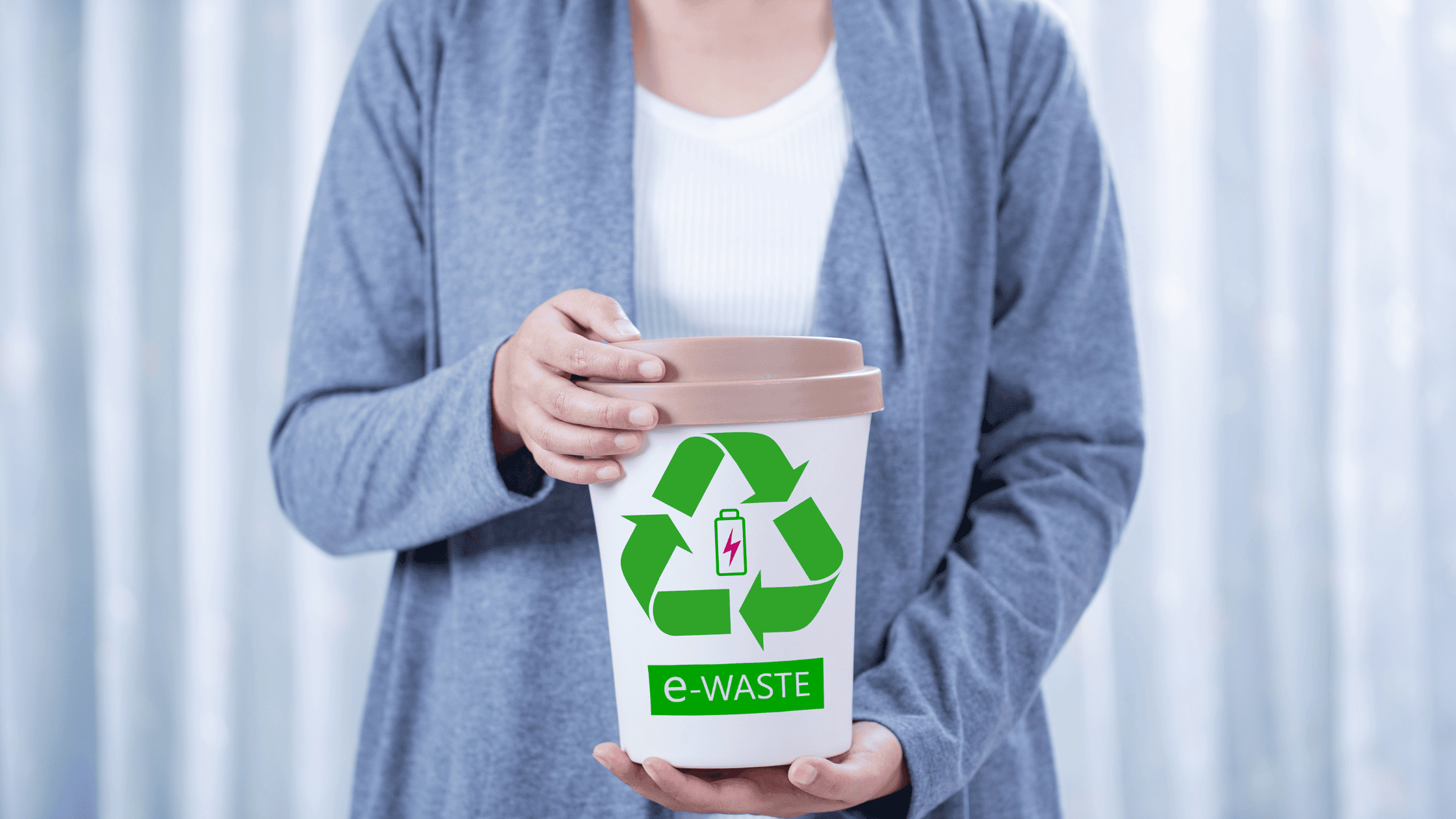
What is E Waste? What it is and Why it Matters

Table of Contents
What is e-waste?
E-waste, or electronic waste, is when old electronic products like gadgets or devices are thrown away, recycled, or fixed up. This includes old or broken items like computers, mobile phones, televisions, and other electronic gadgets. E-waste can be disposed of, repurposed, or reconditioned, but to minimize its negative effects on the environment, it must be managed carefully.
Kinds of Electronic Trash
Ever think about how many mobile phones you’ve had? Your answer can tell you about the impact of electronic waste, also called e-waste, on our planet. Around 40% of people get a new phone every two years, and 37.8% change it when it’s no longer useful. The Organisation for Economic Co-operation and Development (OECD) says electronic waste is any device powered by electricity that’s done working. It’s not just about mobile phones. Let’s look at different types of WEEE (Waste Electrical Electronic Equipment) as instructed by the European Union (EU).
List of items for disposal:
- Desktop and Systems
- Laptops
- Computer accessories (peripherals)
- Monitors
- Electronic keyboards, mice, and pointing devices.
- Printers, scanners, and fax machines
- External hard drives
- Radiotherapy equipment
- Freezers
- Dialysis equipment
- Ventilators
- Scanners
- Lab equipment
- Diagnostic equipment
Can you get in trouble for throwing away computers?
Electronic devices can be harmful when thrown in landfills, causing serious environmental problems. The solution starts with letting people know and finding out what their local community wants them to do with unwanted electronics.
Throwing away specific electronic devices in the regular trash or recycling is against the law. Some electronics have harmful substances that can damage the environment. Technology is changing very quickly. Every year, we throw away about 40 million tonnes of electronic waste worldwide. This is like getting rid of 69 million laptops every day. We must choose the right path when it comes to disposal of E Trash.
Why does managing electronic waste matter?
Recycling electronic devices is crucial because they often have harmful substances like toxic chemicals and heavy metals. When we recycle them, we decrease the release of these chemicals into the environment. Also, when manufacturers use recycled materials to make new products, it saves energy and produces fewer greenhouse gases compared to using entirely new materials.
Remember to recycle your appliances and electronics to prevent them from ending up in the landfill. Recycling helps reuse these items, and when done right, it lowers water pollution and reduces greenhouse gas emissions.
Electronics consist of parts with valuable materials. When we recycle old devices, we save energy and reduce the need to extract new materials from nature for making new devices. Reusing old devices not only prevents electronic waste from ending up in landfills but also saves resources that would be used in the recycling process. Moreover, reusing electronics can benefit others in your community who may not have access to new devices. So, consider taking your old devices for refurbishment, if possible, and give them a chance for a new life.
People often overlook that when they toss out electronic devices like computers, smartphones, or tablets, they might expose themselves to security threats. These devices can contain important and private information. If this information gets into the wrong hands, it could put your business in danger.
Even if you believe simply deleting your files is enough, actions like erasing or overwriting can’t guarantee that your data is entirely gone. For big companies, experiencing a data breach can be very expensive, and they might face fines and lawsuits as a result.
So, it is very important to recycle the E trash and preserve the environment for the future.
Human Health Consequences
Electronic waste contains various harmful materials like lead, which harms brain function, especially in children. Americium can lead to cancer, mercury causes issues like memory loss and muscle weakness, cadmium can result in severe lung damage when breathed in, sulphur damages the liver, heart, kidneys, and eyes, and chromium is a known cause of cancer.
| Metal | Health Effects of E-Waste |
| Lead | Damages brain function, especially in children |
| Americium | Can induce cancer |
| Mercury | Causes memory loss, muscle weakness, reduced fertility, and more |
| Cadmium | Causes severe lung damage if breathed in |
| Sulphur | Damages the liver, heart, kidneys, and eyes |
| Chromium | A known cause of cancer |

Throwing away electronic waste incorrectly not only hurts the environment but also brings serious consequences for your business. It’s crucial to keep emphasizing this message. Disposing of electronics by tossing them out, instead of recycling, causes more harm than good.
Our Role in E-Waste Recycling: Your Environmental Partner
As a dedicated e-waste recycling company, we play a crucial role in environmental preservation. Here’s why your participation is essential:
- Environmental Responsibility
- Resource Conservation
- Health Protection
- Data Security
- Legal Compliance
- Community Impact
- Energy Savings
Your collaboration with SREEEWASTERECYCLING not only fulfils your corporate social responsibility but also makes a tangible difference in preserving the environment, protecting health, and supporting the community.

I would like to know how these e waste in india handled and recycled as per my knowlege everything are clearly recycled